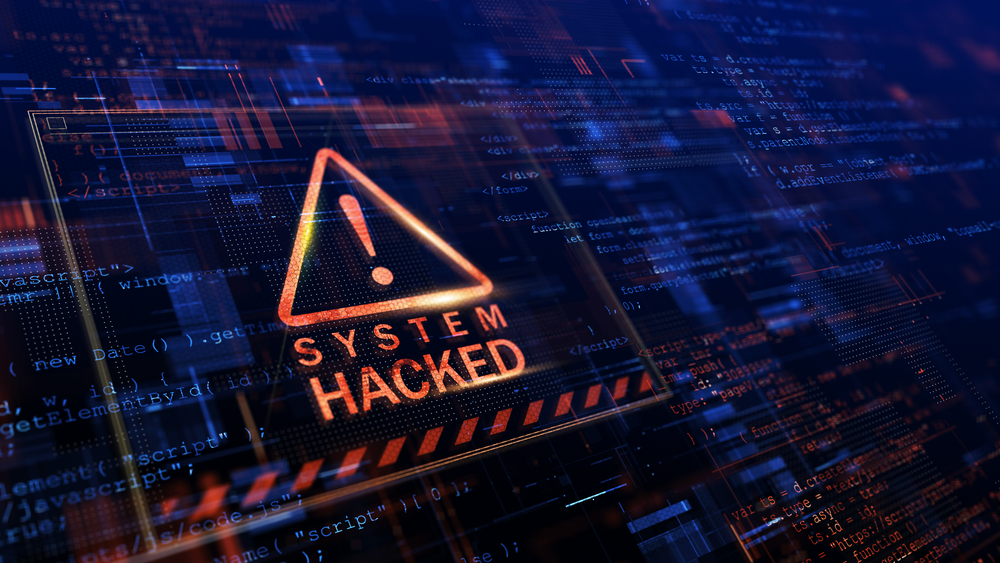On March 11th, the official Algerian radio announced that the Ministry of Justice’s official Twitter account had been hacked, accusing what it called “Moroccan hackers” of publishing tweets unrelated to Algeria’s international positions. This illustrated that in parallel to political tensions between Algeria and Morocco, another confrontation is raging in cyberspace, dubbed a shadow war by some experts. Hackers of the Ministry of Justice’s official Twitter account published several tweets supporting the Russian operation in Ukraine, accusing Ukrainian President Volodymyr Zelensky of “Naziism and the murder of his citizens.” On March 12th, the Algerian Judicial Council launched a judicial investigation into the hacking, saying in its statement that “the public will be informed of the results of the investigations in a timely manner.”
It is worth noting that these cyber-attacks are not the first of their kind. In November, the website of the General Confederation of Moroccan Enterprises (CGEM) was hacked, while Moroccan hacker group, Morocco Hack Team attacked the website of the Algerian Ministry of Finance. On December 17th, 2020, hackers disrupted the website of the National Agency for the Valuation of Hydrocarbon Resources. The Ministry of Energy said in a statement the next day that the agency’s website was attacked by hackers and called for on users not to access the site until the attack is stopped. According to observers, the wave of attacks escalated, largely targeting government websites and some media institutions.
Morocco has denied Algerian accusations about the recent attacks, as confirmed by Moroccan Foreign Minister Nasser Bourita in an interview with the French magazine Jeune Afrique in July. In the interview, Bourita demanded Algeria provide concrete evidence, explaining that Morocco will take legal action in dealing with these claims. He also indicated that “these accusations were based on pure speculation,” and that what he called “the malicious and misleading campaign” led by a group of international platforms serving agendas known to be hostile to Morocco. These allegations are, according to him, are promoted by circles “disturbed by the successes.” that Morocco has accumulated in recent years.
However, despite Morocco’s denial of the Algerian accusations, on February 16th, 2021, Moroccan newspaper Hespress revealed information that Moroccan hackers had hacked dozens of websites affiliated with Algerian government sectors. The cyber-attack was allegedly a response to an attack by “Al-Shorouk TV” on the person of King Mohammed VI.” The Moroccan newspaper quoted the hackers on some of the details of the operation, confirming that more than 280 Algerian websites were hacked, including government websites. On February 8th, 2021, Algerian Minister of Communications and official government spokesperson Amar Belhimer accused Morocco of recruiting hundreds of agents in the virtual world to attack Algeria.
Motivations
A set of factors explain the escalation of cyber-attacks between Algeria and Morocco, summarized as follows:
Broad and escalating tensions between the two countries. These tensions are related to the decades-old dispute regarding Moroccan sovereignty over the territory of Western Sahara. In a move considered by Algeria as escalatory on the part of Morocco, Permanent Representative of the Kingdom of Morocco to the United Nations Omar Hilale presented a paper to the members of the Non-Aligned Group in July 2021, calling on them to support what he called “the self-determination of the Kabylia people,” describing the Kabylia region as “under Algerian colonial rule.” The Moroccan move came after Algeria announced it was undertaking a process of border demarcation with the Polisario Front. Tensions escalated after Algeria announced the severance of ties between the two countries and banned Moroccan civil and military aviation from Algerian airspace, as well as Algeria’s unilateral decision to halt its gas pipeline agreement through Morocco.
Cyber-attacks as a non-traditional deterrent. Cyber-attacks have become a tool in international conflicts and disputes. The recent series of cyber-attacks between Morocco and Algeria can be viewed as part of a new stage of unconventional confrontation. These attacks allow adversaries greater scope to penetrate on the domestic front, as cyber-attacks can damage vital infrastructure, paralyzing and disrupting important economic, military, and security sectors.
Cyber- space as an alternative arena of confrontation. Despite the escalation of military movements on the border between the two countries, some observers believe it is unlikely that Algeria and Morocco will be involved in a full-fledged conflict, and that the increase in cyber-attacks indicates a tendency to avoid armed confrontation and rely on modern means and digital technology.
Mobilizing Domestic support. Algeria’s repeated accusations against Morocco of waging a cyber war has led some observers to argue that the Algerian government is pursuing domestic political objectives. It seeks to convey to the Algerian public opinion that the country is confronting an “external enemy”, namely Morocco, in an attempt to undermine calls for popular protests.
Concerns regarding Israeli Moroccan cybersecurity cooperation. Israel and Morocco have already signed agreements on military and technical cooperation in the field of cybersecurity, which Algeria perceives as upending its military-technical balance with Morocco. In February 2021, the Algerian government warned of threats to Algeria’s digital sovereignty and accused Morocco of purchasing spyware from Israeli surveillance company NSO, accused of hacking the mobile phones of more than 1,400 users in 20 countries. Algeria has reportedly accused Morocco of acquiring Israeli-made Pegasus spyware program, which has further strained relations between the two neighbors.
The weapon of choice
In conclusion, it can be argued that the escalation of cyber-attacks between Morocco and Algeria is another manifestations of their historical competition, especially over the Western Sahara. In light of the growing tensions, these cyber-attacks are likely to escalate, targeting government sites, infrastructure, public facilities, military, and economic sites, and in particular oil and gas infrastructure. This scenario is buttressed by the avoidance, to date, of outright military confrontation by both countries, despite competition over acquiring the latest weapons and military equipment. Both parties appear keen to avoid comprehensive, open, confrontation. Consequently, this cyber war may seem an appropriate option to achieve the two countries’ strategic goals, at the lowest possible cost.


